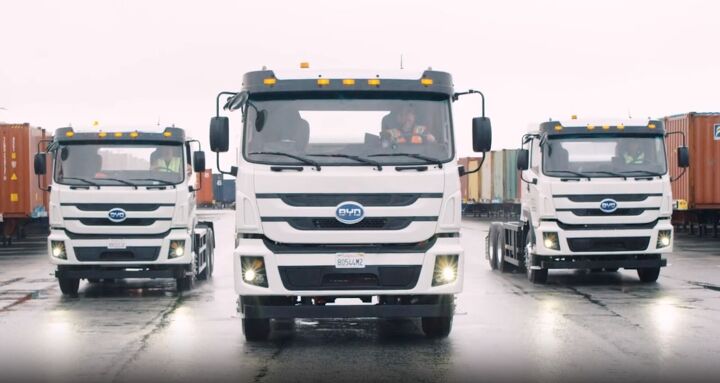
Chinese automaker BYD has been seeking to build an automotive plant in Mexico, with the company’s regional chief executive confirming the plan on Wednesday. CEO Stella Li has stated that BYD has yet to decide upon a final location. But that plan is for the site to boast a production capacity of 150,000 vehicles annually, with none being slated for export to the United States.
Despite focusing its quest for real estate in a country neighboring the United States, Reuters quoted Li as saying that the facility will exclusively serve the Mexican market. However, the decision may be out of her hands considering the way American legislators have spent the last several months mobilizing to try and prevent the importation of Chinese goods in the automotive and energy sectors.
From Reuters:
BYD outpaced former market leader Tesla in EV sales globally in the fourth quarter of 2023, and auto industry officials say its push into Mexico foreshadows a competitive threat the Shenzhen-based automaker and others from China may pose to companies already operating in the U.S. market.
A U.S. manufacturing advocacy group, the Alliance for American Manufacturing, this month warned low-cost Chinese cars and parts could threaten the viability of auto companies in the U.S. The group called on Washington to block the import of low-cost Chinese autos and parts from Mexico to prevent an "extinction-level event" for the U.S. auto sector.
Li said BYD's Mexico ambitions are solely geared at local sales, adding the company is scouting for factory sites in central and southern areas rather than northern Mexico near the U.S. border, where she said transportation costs to reach consumers would be expensive.
It would be reasonable to assume BYD is just trying to downplay things while tensions are high. But it’s also difficult to assume the vehicle it’s leading with would have been a sales success in the United States. This week, the company announced plans to sell its Dolphin Mini EV for roughly $21,000 in Mexico.

The Dolphin Mini is an incredibly small EV intended to be an urban runabout. It boasts roughly the same shape as a Honda Fit (Jazz if you’re European) with a maximum range of about 170 miles. But it’s a tad smaller than the Honda in just about every single dimension, takes nearly 15 seconds to reach 62 mph, and yields a top speed of just 80 mph.
While BYD does sell a larger version of the Dolphin that’s a tad bigger than the Honda Fit, and might appeal to American drivers, there have been no plans announced to manufacture the model in Mexico. Meanwhile, corporate leadership has continued to signal that it’s not interested in selling to the United States — even though previous statements have indicated the opposite.
BYD has been making investments in the State of California for several years and even purchased a shuttered RV manufacturing plant so it could assemble electric buses and other commercial vehicles under government contracts. At the time, it focused on promoting the fact that its vehicles were incorporating nearly 75 percent U.S. content. But it has been more reserved in making promises about its commitment to the United States since the government has started to introduce new provisions to exclude Chinese companies on national security grounds.
"Our plan is to build the facility for the Mexican market, not for the export market," stated Li.
While the statement has been framed as disingenuous, Li told Yahoo Finance the same thing — adding a little more context.
"We're not planning to come to the U.S.," the CEO explained. "It's an interesting market, but it is very complicated."
Those statements came after a bill was introduced in the Senate to increase the tariffs on Chinese imports by 100 percent and right before news broke that the White House planned on examining the national security risks associated with Chinese connected vehicle technologies that would presumably be inside all modern products. However, the Chinese government has placed U.S. brands selling in China (most notably Tesla) under similar scrutiny in the past and rarely allowed U.S. businesses to operate in its borders without creating a joint venture with domestic firms. All sides are presumably aware of the regulatory games being played and how it might influence foreign access to the two markets.
"I think they are [overreacting] a little bit," Li said. "A little bit too scared about Chinese competition. I never believe that trade protection will help any company."
"The Chinese market is the most competitive market. If you are the winner in the most competitive market why [can't you win] in other [countries]?"
Expect American manufacturers and legislators to continue focusing on what’s to be done about Chinese imports for the foreseeable future. This issue was already a maze of regulatory action and looks poised to become even more complicated.

[Images: BYD]
Become a TTAC insider. Get the latest news, features, TTAC takes, and everything else that gets to the truth about cars first by subscribing to our newsletter.
via Autobuzz Today
Comments
Post a Comment